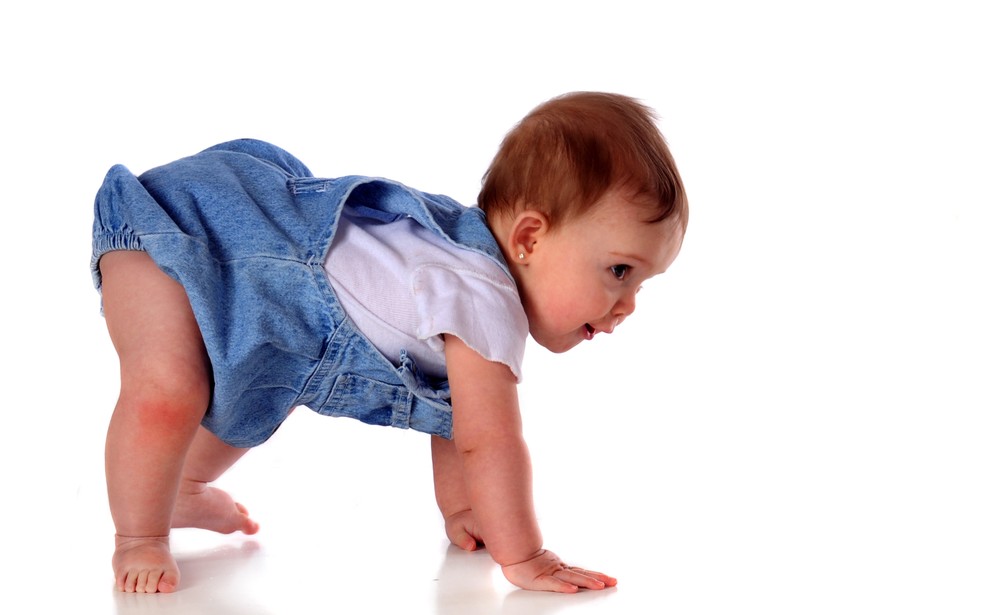Parents may get giddy when their baby begins to crawl. But a new Israeli study suggests that moms and dads may need more caffeine during this time to help keep them alert or awake.
Babies who have started crawling wake up more often at night compared to the period before the crawling, reveals a new study by Dr. Dina Cohen of the University of Haifa’s Department of Counseling and Human Development.
The doctoral study observed 28 healthy babies who were developing normally, examining them once every two to three weeks. Their motor development and sleeping habits were monitored from age four to five months and continued until age 11 months. Their sleep patterns were measured by a device called an ActiGraph that provides objective evaluations of sleep patterns, taken together with parental reports from diaries and questionnaires.
The study showed that the average age for the babies to begin crawling was seven months, and that this was accompanied by an increase in the number of times they woke up at night, from an average of 1.55 times per night to 1.98 times (based on the ActiGraph measurements).
The study also found that the scope and complexity of the changes – which included waking more frequently and moving around a lot during asleep – were more pronounced among those who started crawling earlier. By contrast, those who started to crawl later demonstrated only one change: waking up more frequently.
“It is possible that crawling, which involves a vast range of changes and psychological reorganization in the babies’ development, increases their level of arousal, influences their ability to regulate themselves and causes a period of temporary instability that expresses itself in waking up more frequently,” Dr. Cohen says.
The good news for parents: Within three months from the day crawling begins, the baby will generally return to the sleep patterns from before acquiring the new motor skill.
Baby crawling photo by Shutterstock.
Fighting for Israel's truth
We cover what makes life in Israel so special — it's people. A non-profit organization, ISRAEL21c's team of journalists are committed to telling stories that humanize Israelis and show their positive impact on our world. You can bring these stories to life by making a donation of $6/month.





